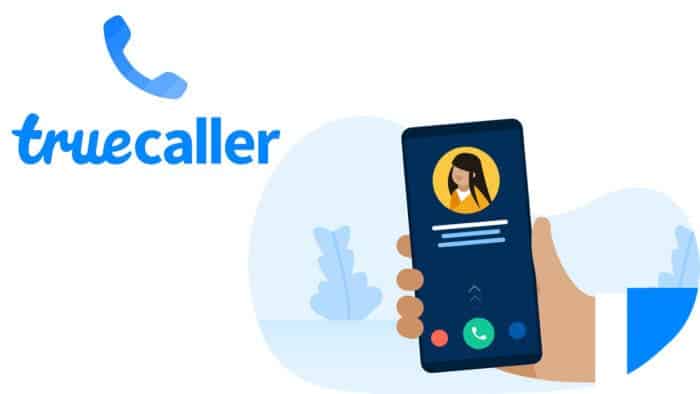Truecaller, a leading caller ID and spam protection application, has announced a groundbreaking partnership with Microsoft to integrate Personal Voice technology from Microsoft Azure AI Speech. This collaboration significantly enhances Truecaller’s existing AI Assistant, offering users a new level of control and personalization when managing incoming calls.
Truecaller and Microsoft Partner to Bring Personalized AI Voices to Call Management

Elevating the AI Assistant with Personal Voice
Launched in September 2022, Truecaller’s AI Assistant already boasts impressive capabilities. It can automatically answer calls, screen them for spam, take messages, respond with pre-written texts, and even record calls for later reference. With the addition of Personal Voice, users can now create a digital replica of their own voice for the AI Assistant to utilize. This means callers will hear a familiar, authentic voice instead of a generic digital assistant when interacting with Truecaller’s AI features.
Truecaller secured early access to Personal Voice and showcased this innovative feature at the recent Microsoft Build conference in Seattle. The company believes this technology has the potential to revolutionize call management, offering users a more natural and personalized experience when interacting with their AI Assistant.
Microsoft Azure AI Speech: Powering Personalization with Responsibility
Microsoft emphasizes its commitment to responsible AI development with Personal Voice. The technology prioritizes transparency in human-computer interaction and incorporates safeguards to prevent misuse. Personal Voice is currently in limited access, requiring user registration and explicit consent for designated purposes like voice assistants employed by Truecaller.
Furthermore, Microsoft integrates watermarks into generated voices to ensure authenticity and maintains a code of conduct to prevent unauthorized impersonation. While real-world applications, such as replacing voicemail greetings with a user’s personalized voice, are yet to be fully explored, this partnership marks a significant step forward in the evolution of AI-powered voice technology.
A Collaboration Ushering in a New Era of Call Management
Raphael Mimoun, Product Director & General Manager of Truecaller, expressed his enthusiasm about the partnership: “By integrating Microsoft Azure AI Speech’s Personal Voice capability, we’ve taken a significant step towards a truly personalized and engaging communication experience. This feature allows users to leverage their own voice, making the AI Assistant sound just like them when handling calls. This groundbreaking capability not only adds a layer of familiarity and comfort but also showcases the power of AI in transforming how we interact with digital assistants.”
Mimoun further emphasized the value of the collaboration: “We’re thrilled to be working with Microsoft on this project and leverage their expertise in text-to-speech and AI technologies. The seamless integration and exceptional support from the Microsoft team have been instrumental in bringing this feature to life.”
https://www.youtube.com/watch?v=aBXBOfasWg
Gizchina News of the week
The Future of Personalized Voice Interactions
The integration of Personal Voice into Truecaller’s AI Assistant signifies a promising advancement in the field of AI-powered communication tools. This technology holds the potential to transform how users interact with their phones. Offering a more natural and personalized call management experience. As the technology matures and limitations are addressed, we can expect Personal Voice to find applications beyond Truecaller’s AI Assistant. Potentially impacting various sectors that rely on voice interactions.
However, it’s crucial to acknowledge the ethical considerations surrounding AI-generated voices. Microsoft’s commitment to responsible AI development through transparency, user consent, and safeguards is a positive step. Continued discussions and regulations will be necessary to ensure this technology is used ethically and responsibly as it evolves and finds wider applications.
This partnership between Truecaller and Microsoft paves the way for a future where AI-powered voice assistants seamlessly integrate into our daily lives, offering a level of personalization and convenience previously unimaginable. As both companies continue to refine and expand upon Personal Voice technology, we can expect even more innovative applications to emerge. Shaping the way we interact with technology and one another.
Personalizing the Call Experience: Potential Applications and Remaining Challenges
Beyond the core functionality of Truecaller’s AI Assistant, Personal Voice offers a glimpse into a future brimming with possibilities for personalized voice interactions. Here are some potential applications to consider:
- Enhanced Customer Service. Imagine a world where virtual assistants in call centers utilize a customer’s preferred voice to deliver personalized greetings and navigate menus. This could significantly improve customer experience by creating a more familiar and welcoming interaction.
- Accessibility Features: Personal Voice could empower individuals with speech impediments or disabilities. By allowing them to create a clear, synthesized voice for communication purposes. This technology could foster greater independence and inclusivity.
- Language Learning Tools: Imagine practicing pronunciation with an AI assistant that can mimic a native speaker’s voice. Personalized voice technology could revolutionize language learning by offering a more natural and engaging practice environment.
- Content Creation and Narration: The ability to create a digital voice replica opens doors for content creators. Authors could utilize Personal Voice to narrate their audiobooks, or YouTubers could leverage it to create personalized intros and outros for their videos.
Ethical Considerations and the Road Ahead
While Personal Voice presents exciting possibilities, it’s essential to acknowledge the ethical considerations that accompany this powerful technology. Here are some key challenges to address:
- Deepfakes and Misinformation. The ability to create realistic voice replicas raises concerns about the potential for deepfakes and the spread of misinformation. Robust safeguards and user authentication measures will be crucial to mitigate these risks.
- Privacy Concerns: The process of creating a personalized voice model requires user data. Transparency about data collection practices and ensuring user control over their voice data will be paramount.
- Accessibility and Bias: As with any AI technology, there’s a risk of bias creeping into Personal Voice models. Developers must strive to create inclusive technology that represents the diversity of human voices and avoids perpetuating discrimination.





